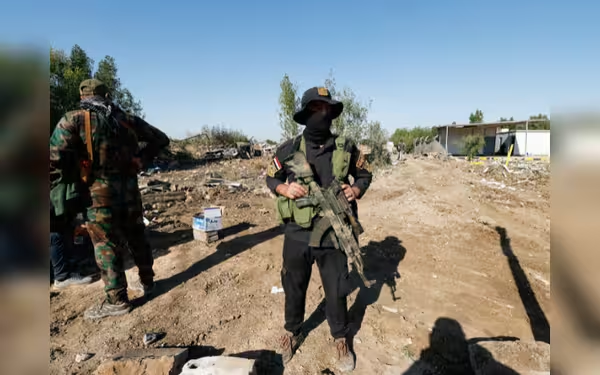Saturday, November 16, 2024 07:24 PM
Hezbollah Adopts Low-Tech Tactics Against Israeli Surveillance
- Hezbollah shifts to pagers and couriers for communication.
- Israel's IDF focuses on precise military targets.
- Conflict highlights evolving nature of modern warfare.
 Image Credits: tribune.com.pk
Image Credits: tribune.com.pkHezbollah adapts to Israeli surveillance by using low-tech communication methods, highlighting the evolving nature of modern warfare.
In recent times, the ongoing conflict between Israel and Hezbollah has taken a new turn, particularly after the targeted airstrikes that resulted in the deaths of several senior commanders of the Iranian-backed Lebanese militant group. This has prompted Hezbollah to rethink its strategies in the face of Israel's advanced surveillance capabilities. As a response, Hezbollah has turned to low-tech methods, such as using pagers and couriers, to communicate and coordinate their operations, aiming to evade the sophisticated spying technology employed by the Israel Defense Forces (IDF).
The IDF has made it clear that their military operations are focused on striking specific military targets while taking "feasible precautions in order to mitigate harm to civilians." This statement underscores the ongoing tension in the region, where both sides are constantly adapting to each other's tactics. While Israel relies heavily on its high-tech arsenal, including drones and electronic surveillance, Hezbollah's shift to simpler communication methods highlights a significant change in the dynamics of modern warfare.
Hezbollah's reliance on low-tech strategies is not merely a matter of preference; it is a necessity born out of the need to protect their operations from being detected. By using pagers and couriers, they aim to reduce the risk of interception by Israeli intelligence. This approach may seem outdated in an era dominated by digital communication, but it reflects a deep understanding of the vulnerabilities that come with technology.
As the conflict continues, it raises important questions about the future of warfare. Will we see a resurgence of low-tech strategies as groups like Hezbollah adapt to the challenges posed by advanced surveillance? Or will technological advancements continue to dominate the battlefield? The answers to these questions will shape not only the tactics of military groups but also the broader geopolitical landscape.
The ongoing conflict between Israel and Hezbollah serves as a reminder of the ever-evolving nature of warfare. As both sides adapt to each other's strengths and weaknesses, the use of low-tech methods by Hezbollah illustrates a strategic pivot that could influence future engagements. Understanding these dynamics is crucial for anyone interested in the complexities of modern conflicts and the implications they hold for regional stability.













